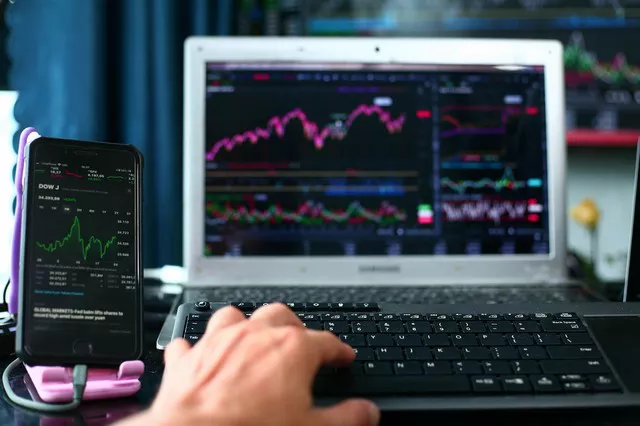In the complex world of finance, investors and traders often turn to futures contracts as powerful tools for managing risk and seeking opportunities for profit. One of the most widely recognized and followed futures contracts is the DJIA futures, which is linked to the Dow Jones Industrial Average (DJIA).
Defining DJIA Futures
DJIA futures, short for Dow Jones Industrial Average futures, are financial derivatives contracts that allow market participants to speculate on the future performance of the DJIA, one of the most prominent stock market indices in the United States. These futures contracts are essentially agreements to buy or sell the DJIA at a predetermined price on a specified future date.
The DJIA in a Nutshell
Before delving into DJIA futures, it’s essential to understand the underlying index. The DJIA, often referred to as “the Dow,” is a price-weighted index composed of 30 large, publicly traded companies representing various sectors of the U.S. economy. These companies are considered blue-chip stocks and are selected by the editors of The Wall Street Journal, aiming to provide a snapshot of the U.S. stock market’s overall health.
The Purpose of DJIA Futures
DJIA futures serve several essential purposes in the financial markets. Firstly, they allow investors to hedge against adverse movements in the DJIA. For instance, if an investor holds a portfolio of stocks similar to those in the DJIA and believes the market may decline, they can use DJIA futures to offset potential losses. Conversely, speculators can use these futures contracts to profit from anticipated price movements in the DJIA without owning the underlying stocks.
How DJIA Futures Work
DJIA futures operate based on the principle of leverage. When an investor or trader enters into a DJIA futures contract, they are not required to pay the full value of the underlying DJIA. Instead, they deposit a margin, which is a fraction of the contract’s total value. This leverage magnifies both potential gains and losses, making DJIA futures a high-risk, high-reward investment tool.
Contract Specifications
DJIA futures have specific contract specifications that govern their trading. Each contract has a standard expiration date and a set contract size, which represents the dollar value of the underlying DJIA index. Additionally, the futures price is determined by market supply and demand, reflecting the market’s expectations for the future level of the DJIA at the contract’s expiration.
Uses of DJIA Futures
DJIA futures are utilized by a diverse group of market participants. Institutional investors, such as mutual funds and pension funds, may use these futures contracts to manage their portfolios’ risk exposure. Traders, on the other hand, may use DJIA futures for speculative purposes, aiming to profit from short-term price fluctuations in the index. Additionally, DJIA futures provide international investors with a means to gain exposure to the U.S. stock market.
Risks and Rewards
Trading DJIA futures can be lucrative, but it comes with inherent risks. The leverage associated with these contracts means that even small price movements in the DJIA can lead to significant gains or losses. It’s vital for traders to have a well-thought-out strategy, risk management plan, and a clear understanding of the factors influencing the DJIA’s movements.
Market Influences on DJIA Futures
Several factors impact the prices of DJIA futures contracts. These include macroeconomic indicators, corporate earnings reports, geopolitical events, and central bank policies. The sentiment of market participants and global economic conditions also play a crucial role in driving the demand for DJIA futures.
Contract Settlement
DJIA futures contracts can be settled in two ways: cash settlement or physical delivery. Most DJIA futures contracts are cash-settled, meaning that no actual DJIA shares change hands. Instead, the contract’s value is settled in cash based on the difference between the futures price and the actual DJIA level at the contract’s expiration.
The Role of DJIA Futures in Global Finance
DJIA futures hold a prominent position in the global financial markets. They serve as key instruments for both domestic and international investors looking to gain exposure to U.S. equities. Moreover, the DJIA is closely watched by analysts, policymakers, and investors worldwide as an indicator of the health of the U.S. economy and broader financial markets.
Conclusion
In conclusion, DJIA futures play a pivotal role in modern finance, offering investors and traders a means to manage risk, speculate on market movements, and gain exposure to the U.S. stock market. These futures contracts are deeply intertwined with the Dow Jones Industrial Average, a venerable index representing some of the most significant companies in the American economy. While DJIA futures provide opportunities for profit, their leverage and complexity also entail significant risks, making them suitable for those with a solid understanding of the markets and a well-defined trading strategy. Understanding DJIA futures is essential for anyone looking to navigate the ever-evolving landscape of global finance.


